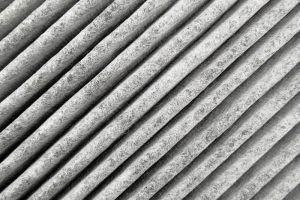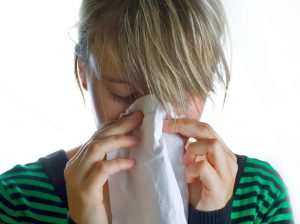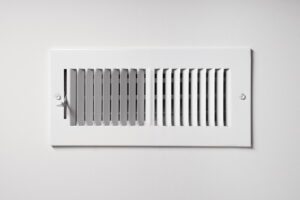Allergy season can make life miserable. Sneezing fits, itchy eyes, nasal congestion, and trouble breathing are common frustrations for people sensitive to pollen, dust, and other airborne allergens. While the great outdoors is a major source of these irritants, your home should be a safe haven. At Hall’s Heating, Air Conditioning & Refrigeration, we specialize in improving indoor air quality (IAQ) to help reduce your allergy symptoms and make your home a more comfortable place to breathe.
Hall's Heating, Air Conditioning & Refrigeration Blog : Posts Tagged ‘Air Purification’
The Different Way Air Purifiers Can Work
Monday, March 25th, 2024
Today, we’re diving into the world of air purifiers, exploring the diverse methods they employ to keep your indoor air clean and fresh. Understanding these technologies is key to making informed decisions when selecting the right air purifier for your home or office.
Indoor air quality is paramount for our health and well-being, given the amount of time we spend indoors. From allergens and pollutants to viruses and bacteria, our indoor air can harbor a variety of contaminants that affect our respiratory health and overall comfort. That’s where air purifiers come in, offering a range of technologies to effectively clean the air we breathe.
New Year’s Resolution: Improve Your Home’s Air Quality
Monday, January 1st, 2024
The New Year is the perfect time to set resolutions that prioritize your health and well-being. One resolution that often goes overlooked is improving the air quality in homes. We spend a significant amount of time indoors, and the quality of the air we breathe can have a profound impact on our health. A professional HVAC company like Hall’s can make a significant difference in your home’s IAQ. Here are several ways we can help you.
The Science Behind Air Purification
Monday, March 1st, 2021
 Let’s face it, if you weren’t into air purification technology before, after a year like 2020 you probably are. Everyone at this point knows how viruses work, knows how air can be purified, and probably knows a thing or two about contracting an illness from person-to-person. With all this information floating around, it can feel hopeless when it comes to keeping your home and your family safe. But is it hopeless?
Let’s face it, if you weren’t into air purification technology before, after a year like 2020 you probably are. Everyone at this point knows how viruses work, knows how air can be purified, and probably knows a thing or two about contracting an illness from person-to-person. With all this information floating around, it can feel hopeless when it comes to keeping your home and your family safe. But is it hopeless?
Absolutely not. Air purifiers are (and have always been) proven scientific methods of eliminating germs in a home’s HVAC system. Especially when it comes to UV air purifiers in Benton, LA, these units are specifically designed to eradicate viruses, bacteria, and mold spores.
If you’re confused as to how these systems might stop germs in their tracks, you’re not the only one. Keep reading as we get into the nitty-gritty of how an air purifier works.
What Is the Best Air Filter and Air Purifier Combination?
Monday, February 5th, 2018
 February isn’t too early to start thinking about the spring. The start of spring means allergy season, although it doesn’t always wait for the official first day of spring. It can strike as early as this month. As soon as the weather warms up a bit, pollen-bearing plants start to bloom and the pollen count spikes. That means sniffles, sneezes, asthma, and worse!
February isn’t too early to start thinking about the spring. The start of spring means allergy season, although it doesn’t always wait for the official first day of spring. It can strike as early as this month. As soon as the weather warms up a bit, pollen-bearing plants start to bloom and the pollen count spikes. That means sniffles, sneezes, asthma, and worse!
If you’re worried about allergy season, or about just staying healthy in general in your house, it’s a good idea to have indoor air quality improvements installed in your HVAC system. Air filters and air purifiers are the most common methods of removing allergens and other aggravating particles from circulating around a house. Usually, IAQ experts pair a filter with a purifier. Filters are a standard way of air cleaning, and they’re useful for almost any home. Since some smaller particles can work through a filter’s mesh, an air purifier serves as the second line of defense.
But there are many types and strengths of air filters, and just as there are many types of air purifiers. How do you find the best combination for great air quality in your home?
Should I Have an Air Purifier or an Air Filter Installed?
Monday, January 16th, 2017
Last week we addressed an important part of looking for an air filtration system: understanding their efficiency ratings. A quick re-cap for those who came in late: if a filter is put into a home’s HVAC system that is too efficient, it will impede airflow and end up putting immense strain on the blower, leading to high energy bills and a system shutdown.
We also briefly brought up another issue that we want to go into deeper today, which is using an air purifier as a way to eliminate smaller particles when an air filter powerful enough cannot be installed.
Understanding the Efficiency of Air Filters
Monday, January 9th, 2017
Winter is often the trouble time for homes when it comes to indoor air quality. A house needs proper insulation to keep heating systems from wasting energy because of drafts. But that also means stuffy air filled with plenty of unwanted particles swarming through the house. Air filters (not the filter in the HVAC system, which isn’t for air quality) are one of the best ways to solve this problem.
Here’s the tricky part, however: there is no such thing one-size-fits-all air filter. Air filters have different efficiencies, and going for the strongest efficiency you can find for air filters is a bad idea!
Pairing Air Filters with Air Purifiers: Is It Right for My Home?
Monday, August 29th, 2016
If you are concerned that the quality of the air in your home isn’t up to the level that you want, or if allergies and asthma are becoming increasing problems for members of your household, we recommend that you have air filters installed into your HVAC system. (The air filter already in place isn’t sufficient, since its purpose isn’t to cleanse the air, but to protect the interior of the AC and heater.)
Why Refrigerant Leaks Can Occur in Your Air Conditioning System
Monday, July 13th, 2015
Last week on our blog, we discussed the seriousness of refrigerant leaking from an air conditioning system. We’ll emphasize this once again: loss of refrigerant charge in an air conditioner is something that you must have professionals fix immediately! Your AC can’t run on a reduced charge because it is not designed to work that way.





